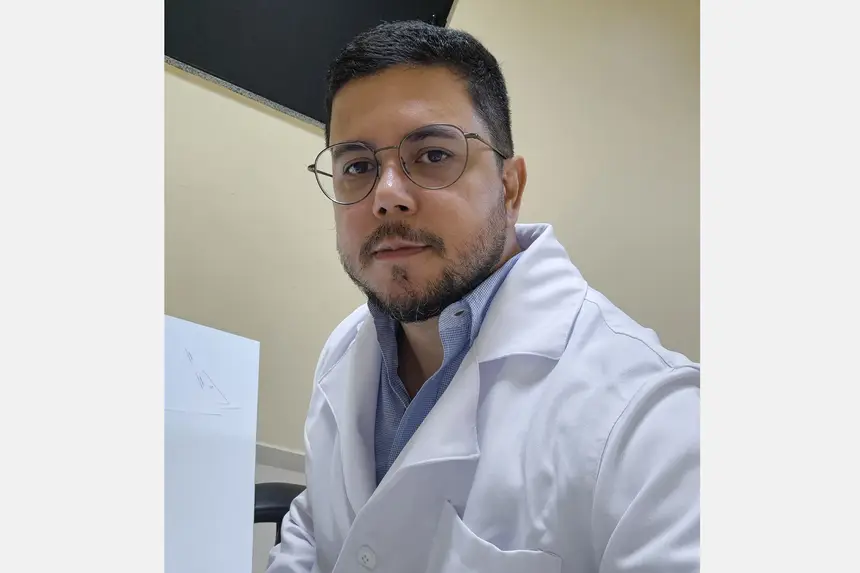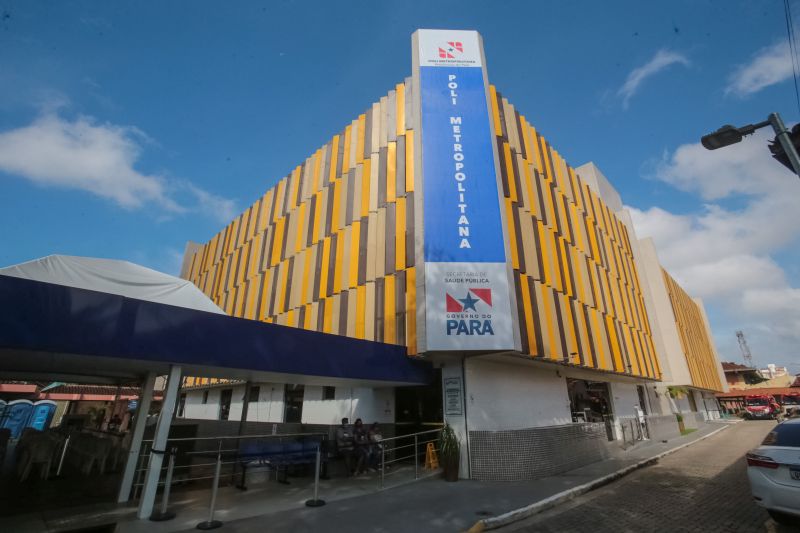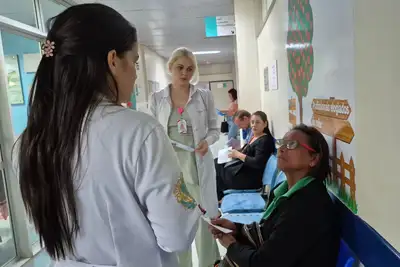Metropolitan Polyclinic Doctor Advises on Care at Beaches and Resorts
Infectologist Sandro Mendes highlights special attention to hydration, nutrition, and sun exposure for children and the elderly

It is summer, and the beaches of Pará become a frequent destination for families seeking leisure. To ensure that this period is enjoyed safely, the Metropolitan Polyclinic, located in Belém, advises the population on the main health risks typical of this season, such as skin infections, gastrointestinal diseases, and complications caused by sun exposure.
According to infectologist Sandro Mendes, who works at the unit managed by the Social and Environmental Institute of the Amazon (ISSAA), in partnership with the State Department of Public Health (Sespa), the most common infections at this time of year are superficial mycoses, such as white spot (pityriasis versicolor), athlete's foot (tinea pedis), and cutaneous candidiasis.

"These infections mainly occur in moist areas of the body and cause itching, redness, peeling, and spots. Prolonged contact with sand and contaminated water is one of the main triggers," explains the doctor from Poli.
In addition to skin diseases, the specialist warns of the risk of gastrointestinal infections resulting from the ingestion of contaminated water, such as gastroenteritis, which causes diarrhea, nausea, and vomiting, and in more severe cases, hepatitis A, whose symptoms include fever, fatigue, and yellowed skin.
"The risk of contamination is greater at beaches that do not have adequate sanitation, where the water may be compromised by human or animal fecal waste, favoring the transmission of diseases," adds Dr. Sandro Mendes.
Food
Nutrition also requires attention during beach days. The infectologist recommends preferring foods prepared at home or purchased from places that follow good hygiene practices. "It is essential to avoid foods exposed to heat and dust, as well as those sold by vendors who do not adopt basic hygiene measures," he advises.
More vulnerable groups, such as children, the elderly, and people with compromised immunity, require extra care. According to Sandro, in these populations, infections that would normally be mild can evolve into more severe cases. "In children, sensitive skin facilitates the emergence of mycoses. The elderly are more prone to dehydration due to intestinal diseases. Patients with chronic diseases, such as diabetes, should keep dressings always dry and clean and avoid intense sun exposure," he reinforces.

Sun Exposure
Another point highlighted by the specialist is sun exposure. The doctor recommends avoiding the hours of greatest solar intensity, between 10 AM and 4 PM, and emphasizes the importance of daily use of sunscreen with an adequate protection factor, hats, light clothing, and sunglasses. "Constant hydration is also essential. Drinking water regularly and avoiding excessive consumption of alcoholic beverages helps maintain the body's balance, especially among the more susceptible groups," he points out.
The presence of pets on the beaches also requires responsibility from their owners. The infectologist advises that owners pick up their pets' feces, prevent them from urinating and defecating in the water, and ensure that animals have access to shade and fresh drinking water. According to him, pets are subject to risks such as burns on their paws, dehydration, ingestion of contaminated water, and prolonged sun exposure. "Animals with light or very short fur may need to use specific sunscreens for veterinary use," he explains.
Profile
With a modern and complete structure, the Metropolitan Polyclinic stands out for its specialized outpatient care. The unit has 52 offices, 10 reception rooms, and a capacity for up to 350 people waiting simultaneously. There are more than 2,500 m² of built area, distributed over three floors. In addition to medical and multiprofessional consultations, it offers laboratory and imaging exams. The hours of operation are Monday to Friday, from 7 AM to 7 PM.









